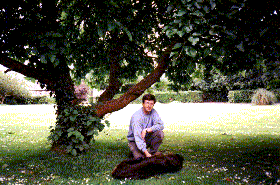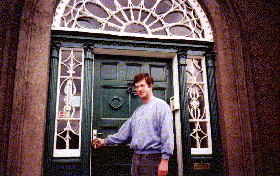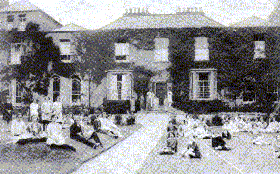

 |  |
Some time ago I wrote a piece about my old family home Springville on Blackrock Road (next to Ashton School). My father had told me that there was supposed to be a secret passage from Springville to Rochelle. Now reading a history of Rochelle School it states:
“There was supposed to be one secret passage in Rochelle, another beside a fireplace in Dr. Bull’s House (a little old house near Cittadella), and a third near a spring or grotto in Springville Gardens. The passages led down to the river at the Marina and were used by the Huguenots for (a) smuggling; (b) transporting silk; (c) escaping; (d) anything else anyone could think of.
It would be easy to dismiss the secret passages as folk-lore; but underground passages were discovered during alterations to an adjoining building, and objects like statues and water-fonts were found in them, leading to speculation that they dated from penal times.”
If you’re passing Old Blackrock Road take a peek in at the lovely gardens and beautiful old house while they stand, because I can hear the diggers revving up in the background. It’s a shame this oasis of tranquility almost 200 years old now literally bites the dust. Incidentally, do any of our readers have memories of Rochelle? We’d love to hear from you on 896496 or douglasweekly@tinet.ie.
I’ll leave the last words to one of my favourite country music groups, the Statler Brothers, who years ago bought their old school in Virginia and turned it into an office complex without changing the structure. Here is what they wrote on one of their albums called “YearsAgo”:
“On the front cover of this album we are standing on the stage of the old Beverly Manor Elementary School in our hometown, Staunton, Virginia. Harold, Lew and Don spent their grade school years in these buildings. Harold, Phil and Lew won their first talent contest on this very stage. Tom Thumb weddings, basketball games, recess fights, marble tournaments, softball games, lunch lines, and a thousand other memories are still alive in its vacant halls and empty rooms, and in our minds.
We recently purchased these old school buildings to turn these memories into our office complex.
And, to all those teachers who told us, “Walk, don’t run in the halls”, we’re walking these halls now.
And sometimes, late at night, when you walk through there by yourself, you can still hear the laughter from the playground, the clatter from the lunchroom, the bouncing of a ball in the gym, and smell the books in the library, and the oil on the hardwood floors, and feel the chalk on your fingers and a spring breeze through an open window, and you’re touched by it all, but you can’t see anything because there’s tears in your eyes, and then you realise those school days weren’t so bad after all.“
Michael O’Hanlon.
 |
 Back to Home Page
Back to Home Page